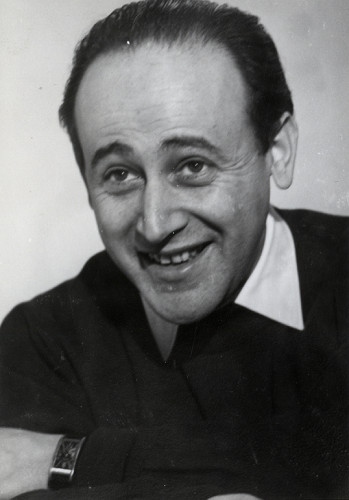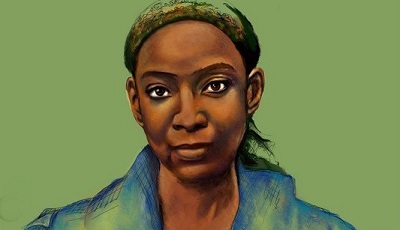De Duits-Roemeense dichter Paul Celan werd onder de naam Paul Antschel op 23 november 1920 geboren in Czernowitz, toentertijd de hoofdstad van de Roemeense Boekovina, nu behorend bij de Oekraïne. Zie ook alle tags voor Paul Celan op dit blog.
LOB DER FERNE (1948)
Im Quell deiner Augen
leben die Garne der Fischer der Irrsee.
Im Quell deiner Augen
hält das Meer sein Versprechen.
Hier werf ich,
ein Herz, das geweilt unter Menschen,
die Kleider von mir und den Glanz eines Schwures:
Schwärzer im Schwarz, bin ich nackter.
Abtrünnig erst bin ich treu.
Ich bin du, wenn ich ich bin.
Im Quell deiner Augen
treib ich und träume von Raub.
Ein Garn fing ein Garn ein:
wir scheiden umschlungen.
Im Quell deiner Augen
erwürgt ein Gehenkter den Strang.
DIE HALDE (1954)
Neben mir lebst du, gleich mir:
als ein Stein
in der eingesunkenen Wange der Nacht.
O diese Halde, Geliebte,
wo wir pausenlos rollen,
wir Steine,
von Rinnsal zu Rinnsal.
Runder von Mal zu Mal.
Ähnlicher. Fremder.
O dieses trunkene Aug,
das hier umherirrt wie wir
und uns zuweilen
staunend in eins schaut.
ZWEIHÄUSIG, EWIGER, bist du, un-
bewohnbar. Darum
baun wir und bauen. Darum
steht sie, diese
erbärmliche Bettstatt, – im Regen,
da steht sie.
Komm. Geliebte.
Daß wir hier liegen, das
ist die Zwischenwand –: Er
hat dann genug an sich selber, zweimal.
Laß ihn, er
habe sich ganz, als das Halbe
und abermals Halbe. Wir,
wir sind das Regenbett, er
komme und lege uns trocken.
IN DE LUCHT, daar blijft je wortel, daar,
in de lucht.
W aar zich het sterfelijke balt, aardachtig,
adem -en-leem .
Groot
gaat de banneling daarboven, de
verbrande: een Pommer, thuis
in ’t meikeverlied dat moederlijk bleef, zomers, licht-
bloeiend aan de rand
van alle steile,
winterhard-koude
lettergrepen.
Met hem
trekken de meridianen :
aan-
gezogen door zijn
door zonnen bestuurde pijn, die de landen verbroedert naar
de middagspreuk van een
liefhebbende
verte. Over-
al is hier en is heden, is, van vertwijfelingen uit,
de glans,
waarin de verdeelden treden met hun
verblinde monden :
de kus, nachtelijk,
brandt de zin in een taal, waar zij toe ontwaken, zij – :
teruggekeerd in
de griezelige banbliksem ,
die de verstrooiden verzamelt, de
door de sterwoestijn ziel gevoerden, de
tentbouwers hoog in de ruimte
van hun blikken en schepen,
de nietige schoven hoop,
waarin het ruist van aartsengelvleugels, van noodlot,
de broeders, de zusters, de
te licht, de te zwaar, de te licht
bevondenen met
de wereldwaag in de bloed-
schendende, in de
vruchtbare schoot, de levenslang vreemden,
spermatisch omkranst door gesternten , zwaar
in de ondiepten legerend, de lichamen
tot drempels getorend, tot dammen, – de
voordenwezens, waarover
de klompvoet der goden komt
heengestrompeld – om
wiens
sterrentijd te laat?
Vertaald door Frans Roumen

De Amerikaanse dichteres en schrijfster Gayl Jones werd geboren op 23 november 1949 in Lexington, Kentucky. Zie ook alle tags voor Gayl Jones op dit blog.
Uit: The Birdcatcher
“Ibiza. I have left Brazil and am living on the white-washed island of Ibiza with my friend Catherine Shuger, a sculptor who has been declared legally insane, and her husband, Ernest, a freelance writer of popular science articles. We are all expatriate Americans: exiles.
Standing on the terrace, sheltered in the smell of oranges and eucalyptus, washed in sunlight, you’d swear this was a paradise. But to tell the truth the place is full of dangers. The dangers, however, are not directed toward me but toward Ernest. You see, Catherine sometimes tries to kill her husband. It has been this way for years: He puts her into an asylum, thinks she’s well, takes her out again, and she tries to kill him. He puts her in another one, thinks she’s well, takes her out again, she tries to kill him: on and on. You’d think we’d learn by now; you’d think everybody’d learn, don’t you? But somehow we keep the optimism, or the pretense, bring her out, and wait. She’s like the fucking trapdoor spider.
Here she’s sitting now: We’re both out on the dandelion-bright terrace. I’m writing this, and Catherine’s scribbling in her therapy notebook that her last psychiatrist told her to keep. Ernest is inside behind the glass door working on an article on laser medicine. Here Catherine sits in a pink silk nightie and blue flannel housecoat, though it’s two o’clock in the afternoon and hot as fresh cow dung out here. Underneath I know what she’s wearing too—Lady Jockey drawers (Look, Amanda, Jockey makes drawers for women! I’ve got to get some of these!) and a champagne-colored (champagne!) Danskin bra. And looking so sweet! If you didn’t know her story, well, you could eat her up the way she’s looking now: wrist on her chin, her jaws as innocent and plum as cherubs’.
Astronomers say that even galaxies eat each other; so why not let’s eat this sweet bitch?
Anyway, she tries to kill Ernest: that’s all the story really. No one knows why, and Catherine won’t tell. The rest of us can only list the attempts: Once she tried to dump a steel bookcase on him, another time she lunged at him with a red-hot poker; once she grabbed the rusty spoke of a bicycle wheel when we were passing by a salvage dump in Detroit.
We were walking down this deserted backstreet one Sunday, before noon. When Catherine spotted the salvage dump, she ran a bit ahead of us, to the wire-mesh fence. When we got to her, she had her hands entwined in the fence. We stood behind her, watching. She looked almost like a little girl in her yellow cotton dress, her hair in tiny braids and tied with a ribbon, her bowlegs peeking out of the dress, and looking as if she were perpetually getting ready to climb onto a saddle—with ride-‘em-cowgirl bowlegs. She was even wearing socks with her high-heeled shoes—that was the latest style. Standing pigeon-toed, she looked like a canary peeking into its cage.”

Portret door Johnalynn Holland, 2020
Zie voor nog meer schrijvers van de 23e november ook mijn blog van 23 november 2018 en eveneens mijn blog van 23 november 2014 deel 2.
